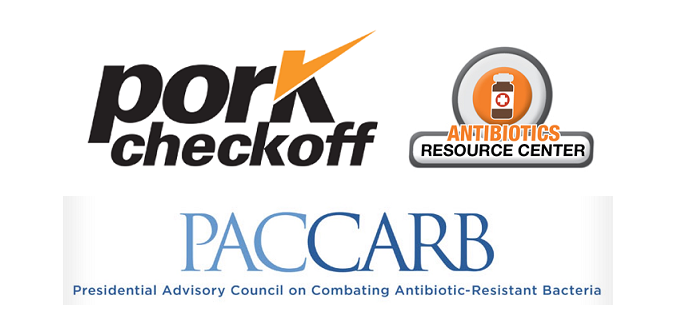Newly proposed action steps to combat antibiotic resistance (AMR), produced in the US by President Barak Obama’s administration, have already drawn a welcome from the country’s pork industry leaders.
The proposals, contained in a 40-page report produced by the Presidential Advisory Council on Combating Antibiotic-Resistant Bacteria (PACCARB), include the following listing of overarching Issues and recommendations:
- Fully embrace a One Health approach; with One Health defined as multiple disciplines and professions working locally, nationally and globally to achieve optimal health in the human, animal and environmental domains.
- Coordination of the federal response: The importance of a coordinated effort across agencies and departments cannot be minimised.
- Resource allocation: Combating AMR requires an adequate resource base to slow down, control, and hopefully reverse the problem. Simply stated, the US government must commit sufficient resources to solving the problem with funding continued over a long period of time.
- Development of critical partnerships: The US government has neither sufficient resources, omniscience about the problems, nor a sufficient pool of expertise to unilaterally solve the problem of AMR.
- Economic incentives for developing and deploying new diagnostic, preventive, and therapeutic tools: Solving AMR will require new modalities, such as new antibiotics, vaccines, and diagnostics.
The release of the report drew a prompt and positive response from the country’s National Pork Board (NPB).
“Antibiotics are essential tools for veterinarians and farmers in raising healthy livestock and producing safe food,” said NPB chief operating officer, John Johnson. “We are pleased therefore to see the administration acknowledge the very real changes occurring on farms across America in accordance with new federal guidance.”
Mr Johnson made specific reference to the report’s support for bringing the use of medically important antimicrobial medicine under the direct supervision of veterinarians to be used only when necessary to ensure animal health. He also applauded the report’s acceptance of the need to collect more, and better, data.
“Pig farmers embrace the new guidelines and are actively implementing them across the country,” he said.
“Strengthening veterinarian relationships, requiring a prescription or veterinary feed directive for the use of medically important antibiotics in water and feed, and prohibiting use of medically important antibiotics for anything other than treatment, control and disease prevention are major steps forward.”
Headline image shows Pork Checkoff and the Antibiotics Resource Centre, which are both part of the US National Pork Board




